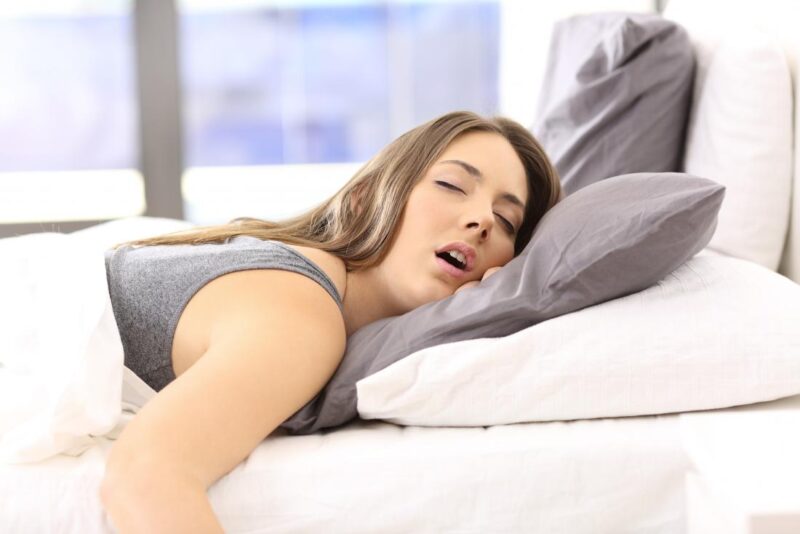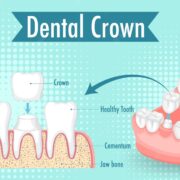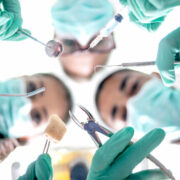Did you know that your oral health can impact your quality of sleep? It’s true! Recent studies have revealed a surprising link between oral health and sleep apnea, a common sleeping disorder that affects millions of people worldwide. Sleep apnea occurs when the airway is partially or completely blocked during sleep, causing breathing to pause or become shallow. While there are various causes of Obstructive apnea, poor oral health has been identified as a contributing factor. In this article, we’ll explore the connection between oral health and sleep apnea, and discuss what you need to know to protect yourself from this debilitating condition. So, if you’re struggling with sleep issues, or simply interested in learning more about the relationship between oral health and overall wellness, keep reading!
What is Sleep Apnea?
It is a sleep disorder characterised by repeated episodes of cessation of breathing while one is asleep. The condition can be caused by a variety of factors, including obesity, smoking, alcohol consumption, and ageing. Obstructive apnea can also be caused by structural abnormalities in the upper airway or central nervous system disorders. The most common form of sleep apnea is obstructive sleep apnea (OSA), which is caused by the partial or complete blockage of the upper airway while asleep. This blockage can lead to a decrease in oxygen levels and an increase in carbon dioxide levels in the blood, causing the individual to wake up multiple times during the night.
OSA is associated with a range of health problems, including high blood pressure, heart disease, stroke, and diabetes. The condition can also lead to daytime sleepiness, fatigue, and poor concentration, which can impact an individual’s quality of life and increase the risk of accidents.
Risk factors of Sleep Apnea
- Obesity: Excess body weight can lead to fat deposits around the upper airway, which can obstruct breathing.
- Age: Sleep apnea is more common in middle-aged and older adults.
- Gender: Men are more likely to develop sleep apnea than women.
- Family history: There may be a genetic component to Obstructive apnea, as it tends to run in families.
- Smoking: Smoking can lead to inflammation and swelling of the airways, which can increase the risk of sleep apnea.
- Alcohol and sedative use: These substances can relax the muscles in the throat and interfere with breathing during sleep.
- Medical conditions: Certain medical conditions, such as congestive heart failure, Parkinson’s disease, and hypothyroidism, can increase the risk of OSA.
Link Between Oral Health and Sleep Apnea
Recent studies have uncovered a surprising link between oral health and sleep apnea. Poor oral health, including gum disease and tooth decay, has been identified as a contributing factor to the development and progression of Obstructive apnea. One study found that individuals with gum disease were nearly three times more likely to develop Obstructive apnea than those without gum disease. Another study found that individuals with severe tooth decay were more likely to have an increased risk of OSA than those with healthy teeth.
The reason behind the link between oral health and sleep apnea is not yet fully understood. However, it is thought that inflammation caused by gum disease and tooth decay can contribute to the inflammation and narrowing of the airway, making it more difficult to breathe during sleep.
Poor Oral Health contributes to Sleep Apnea
Obstructive structures in the mouth and throat: Large tonsils, adenoids, and tongue can partially or completely block the airway during sleep, leading to snoring and interruptions in breathing.
Inflammation and swelling of tissues: Gum disease and other oral infections can cause inflammation and swelling of the tissues in the mouth and throat, which can obstruct the airway and make breathing more difficult during sleep.
Changes in the structure of the mouth and jaw: Missing teeth, a small jaw, or a misaligned bite can cause changes in the structure of the mouth and jaw, which can contribute to airway blockages and breathing problems during sleep.
Acid reflux: Poor oral health and certain dental conditions can lead to acid reflux, which can cause irritation and inflammation in the throat and make it more difficult to breathe during sleep.
Symptoms of Sleep Apnea
Loud snoring: Snoring is often the most noticeable symptom of Obstructive apnea. People with sleep apnea may snore loudly and consistently throughout the night.
Pauses in breathing: People with sleep apnea may experience pauses in breathing or shallow breathing while asleep. These pauses can last for a few seconds to several minutes and may occur many times throughout the night.
Gasping or choking sounds: People with sleep apnea may make gasping or choking sounds during sleep as they try to catch their breath.
Restless sleep: People with OSA may toss and turn during sleep and have trouble staying asleep.
Excessive daytime sleepiness: People with Obstructive apnea may feel excessively tired or sleepy during the day, even if they think they slept well the night before.
Morning headaches: People with OSA may wake up with headaches in the morning.
Difficulty concentrating: People with this may have trouble focusing or remembering things during the day.
Irritability or mood changes: People with apnea may feel irritable or moody during the day due to lack of sleep.
Diagnosis and Treatment of Sleep Apnea
To diagnose sleep apnea, a sleep study is typically conducted. This can be done either in a sleep clinic or at home with a portable monitoring device. The study will measure various aspects of sleep, including brain waves, breathing, heart rate, and oxygen levels. Based on the results of the study, a doctor can diagnose OSA and determine its severity.
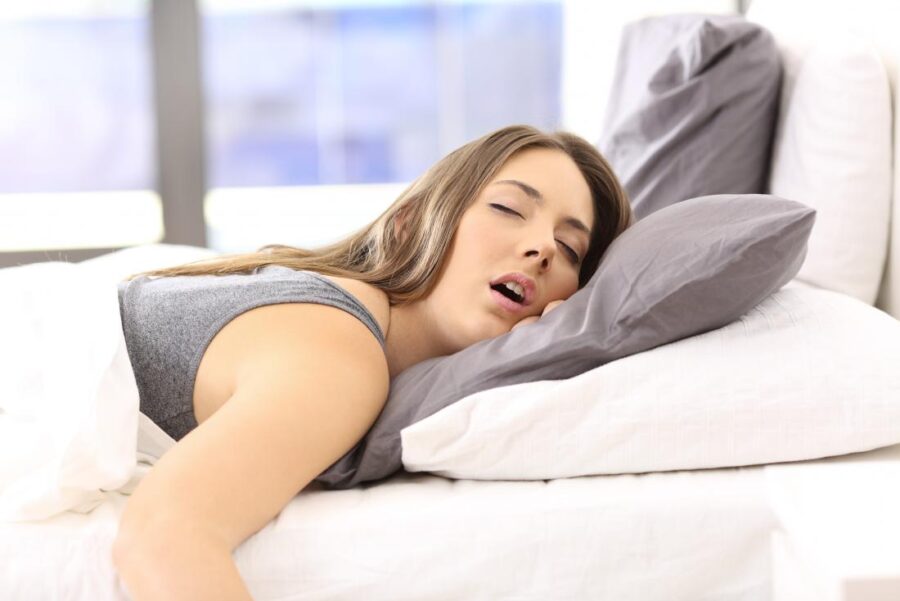
The treatment of sleep apnea depends on its severity and type. Mild cases of obstructive sleep apnea may be treated with lifestyle changes, such as losing weight, avoiding alcohol and sedatives, and sleeping on one’s side.
More severe cases may require medical intervention
- Continuous Positive Airway Pressure (CPAP) Therapy: CPAP therapy involves wearing a mask over the nose or nose and mouth during sleep, which delivers a continuous flow of air to keep the airway open.
- Bi-level Positive Airway Pressure (BiPAP) Therapy: BiPAP therapy is similar to CPAP therapy, but delivers two levels of air pressure instead of one. It is often used for people who have difficulty tolerating CPAP.
- Oral Appliances: Oral appliances are devices that are worn in the mouth during sleep to help keep the airway open. They work by repositioning the jaw and tongue to prevent airway obstruction.
- Surgery: In some cases, surgery may be necessary to remove obstructions in the airway. This can include procedures such as uvulopalatopharyngoplasty (UPPP), which removes excess tissue from the throat, or maxillomandibular advancement (MMA), which moves the upper and lower jaws forward to widen the airway.
- Lifestyle changes: In addition to weight loss and avoiding alcohol and sedatives, lifestyle changes like exercise and quitting smoking can also help alleviate sleep apnea.
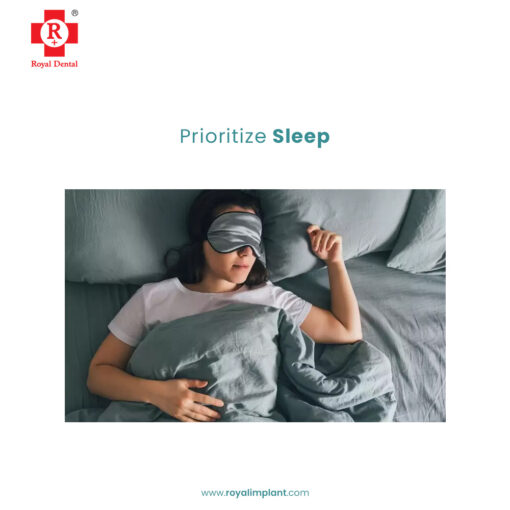
Lifestyle Changes to Improve Sleep Quality
Maintaining a regular sleep schedule
Creating a relaxing bedtime routine
Avoiding caffeine and alcohol before bedtime
Exercising regularly
Creating a comfortable sleep environment
By making these changes, you can improve your overall health and well-being and reduce the risk of sleep apnea.
Regular Dental Check-ups in Preventing Sleep Apnea
- Oral health and Obstructive apnea are strongly connected.
- Dental check-ups can detect oral conditions that may contribute to the development of sleep apnea.
- Misaligned teeth or jaw can also contribute to the development of sleep apnea by causing an obstruction in the airway during sleep.
- A dentist can identify these issues during a regular dental check-up and recommend appropriate treatment, such as orthodontic treatment to correct the misalignment or a dental appliance to help keep the airway open during sleep.
- Poor oral health, such as gum disease, can increase the risk of developing sleep apnea, as it can cause inflammation and damage to the airway.
- Regular dental check-ups play an important role in preventing sleep apnea by identifying and treating oral conditions that can contribute to its development, as well as maintaining overall oral health.
Conclusion
In conclusion, poor oral health has been identified as a contributing factor to the development and progression of sleep apnea. By improving oral health through good oral hygiene and regular dental check-ups, you can reduce the risk of OSA and improve your overall health and well-being. If you are experiencing symptoms, it is important to talk to your doctor. They can refer you to a sleep specialist who can diagnose the condition and provide appropriate treatment. By making lifestyle changes, improving oral health, and seeking appropriate treatment, you can reduce the impact of OSA on your quality of life and improve your overall health and well-being.

